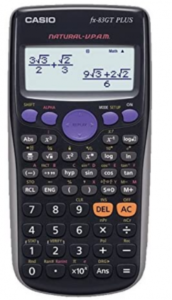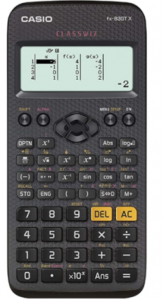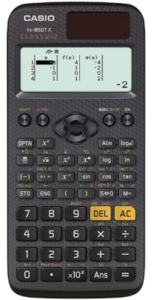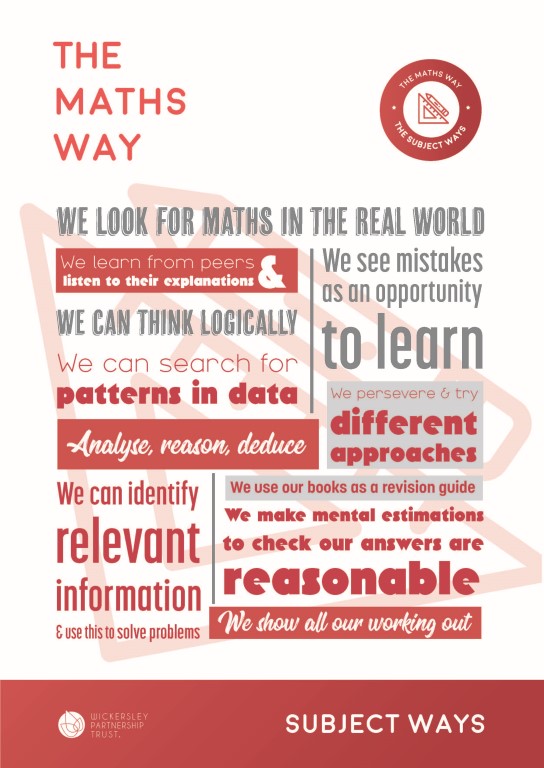Curriculum
Mathematics
The Subject Way
Our subject has a ‘Subject Way’ at the heart of it. Our Subject Way is designed to help students become young subject specialists. The Subject Way has two main purposes:
Firstly, to teach students the vital skills they need to achieve their full potential and gain the very best grades they can. Secondly, to teach students how each subject relates to the wider world, incorporating the life skills they will learn.
It is our belief that knowing how what you learn links to the wider world brings a subject to life and therefore improves overall understanding and engagement.
Curriculum Intent
At ӣ����Ƶapp we understand that getting the curriculum right for each and every individual student is the single most important factor in ensuring progress, encouraging positive engagement and raising aspirations.
At ӣ����Ƶapp, we want all students to leave able and qualified to play their full part in an ever-changing world through an ambitious, creative and innovative curriculum, which empowers students with the skills, knowledge and attributes to allow them to succeed in their next phase of education and their working life.
We aim to engender a love of learning, self-belief and aspiration through 4 key intentions:
- The removal of barriers to learning
- Developing skills for learning
- Developing personal attributes (The Wickersley Way)
- Enriching student experiences and broadening their horizons
��
Our curriculum is not driven by performance tables. It is our belief that a strong, broad, balanced curriculum, tailored to individual needs can remove barriers to learning and allow all students to access the curriculum appropriate to them and will therefore meet their individual needs.
We believe in a strong foundation of core subjects including English, Maths and Science. All students who are identified with deficits in literacy and numeracy are given additional curriculum support. These core fundamental skills are essential in both accessing our broad curriculum offer and the next stage of life; be it education, employment or training.
Intention 1 – The removal of barriers to learning
We want all our students to go out into the world, and become successful, happy, fulfilled adults who will be good citizens and make a positive contribution to society. The acquisition of basic skills is either at the heart of achieving this or a barrier to learning and prevents students from fully flourishing. Four common barriers, if left unchallenged, will limit the progress, engagement and development of students who access our curriculum.
They are:
- Literacy
- Numeracy
- Oracy
- Vocabulary
��
We see these barriers as a high priority for the school. In order to prevent them from becoming a barrier for student development and progress we implement (and closely monitor) the following strategies:
LITERACY
Ensuring learners access reading and writing opportunities within a maths lesson is non-negotiable. Learners regularly work on worded problems and investigations, all of which require learners to build on their literacy skills and give reasoning for their answer. Goal free problems are also used as a method to assist learners with their approach to questions that may require more reasoning or literacy skills.
Our assessments are carefully written to ensure that learners are regularly assessed on reasoning and problem solving questions and the weighting of these questions is in line with that of formal examinations. Learners are encouraged to underline key terminology and identify what is needed to complete the problem.
NUMERACY
Naturally, numeracy is one of the barriers that mathematics focuses on intensely as numerical proficiency correlates well with success in mathematics. We aspire to remove the barrier that numerical fluency places in front of effective study of mathematics. We make use of numeracy tasks to give learners the opportunity to practise, discuss and embed skills that we feel are critical for future success. Number plays a large role within the mathematics curriculum and is interleaved multiple times over the 5-year journey to embed and develop numeracy skills. Our numeracy intervention is well sequenced and supplements the curriculum to ensure that all learners leave numerate.
ORACY
Whilst communicating in a written medium is important, being able to communicate complex mathematical ideas effectively is essential for learners to thrive. Staff model mathematical language during lessons and encourage opportunities to allow students to develop an argument, justification or proof.
Questioning, discussion and reasoning is how we encourage learners to approach their lessons so that they can articulate their understanding of abstract topics to further their learning and improve their confidence when speaking in front of peers.
��
VOCABULARY
Mathematics is a subject that is almost like a language in its own right and learners being confident of word definitions often makes the difference between understanding a question or not. As such, we focus on vocabulary and command words each lesson giving learners the support they need to understand the words. It is our aim to make our learners “word rich” so that they can speak and write about mathematics with confidence. The Frayer Model is embedded within the curriculum to expose learners to academic language on a regular basis.
Intention 2 – Developing Skills for Learning
Developing student knowledge and essential learning skills go hand in hand. Students need to remember with fluency in order to be fully established mini-subject specialists. We strive, at all times, for personal excellence by developing the 6 key skills for success:
- Recall
- Interpretation
- Creativity
- Analysis
- Evaluation
- Divergent thinking
��
Retrieval is an essential skill in mathematics. The ability to apply and recall knowledge quickly is crucial to support progression in mathematics as it frees up working memory to allow learners to engage with problem solving. We interleave previously studied content by using retrieval tasks as lesson starters. Our curriculum follows a mastery approach giving learners time to persevere, work on topics in-depth for longer periods of time, thus enabling learners to move fluently between mathematical ideas.
Generalisation in mathematics takes the patterns that we see in number, algebra and geometry and tries to define a rule for those patterns. We use modelling, derivations and investigations in class to help learners develop their interpretation, analysis and evaluation skills as they seek to generalise what is often abstract content.
Problem solving is also a crucial part of mathematics allowing learners to think creatively. We structure our curriculum to allow learners more time on each strand of learning to not only embed skills but also to facilitate the time to engage with solving problems that link together the vast plethora of mathematics they study.
Intention 3 – Fostering personal attributes
Our curriculum promotes the skills and attributes our children need in order to develop the independence, responsibility, accountability and resilience they need to have a happy and successful life. We refer to this crucial aspect of our curriculum intent as The Wickersley Way and it is embedded in everything we do.
The Wickersley Way enables us to develop well-rounded individuals ready for the next stage. It is about embedding employability skills such as resilience, collaboration, communication, aspiration, responsibility, tolerance and respect in order for them to be an active participant in the local community and beyond.
The Wickersley Way is embedded in assemblies, form periods and our extra-curricular programme. It is the language that we speak and key aspects of the Wickersley Way are as follows:
- We are nice to people
- We say please and thank you
- We are equipped to learn
- We work hard
- We are prepared to make mistakes
- We listen to others
- We believe in ourselves
- We are proud of our achievements
- We take pride in our appearance
- We take responsibility for our actions
- We are ambitious
- We take risks
��
Intention 4 – Enriching student experiences and broadening their horizons
Our intent is that all students have a full understanding of how to develop themselves as well rounded citizens, maintain healthy relationships and understand how to keep themselves safe both online and in their day-to-day life. We want all students to know what options are open to them in the future and understand the routes they have in order to progress on their life journey. Our curriculum will include:
- Exposing learners to worded problem-solving questions based on real life situations
- Measuring distances and working with time in PE lessons
- Tabulating and graphing results in science and geography lessons
- Opportunities throughout the curriculum that expose learners to careers involving mathematical knowledge and skills.
- Opportunities throughout the curriculum to learn about mathematics in different cultures and across the ages
- Celebrating mathematical focus days (such as Pi Day and Number Day)
- Emphasis on financial maths skills during Money Matters Week in Key Stage 3 in line with the PSHE curriculum
- Encouraging participation in maths challenges (such as UKMT and AMSP individual and team events)
- Exposure to subject focused trips (such as visiting The Deep and Market Rasen Racecourse)
- Participation in lectures and events involving external speakers
- Puzzle clubs to encourage curiosity and logical thinking
Curriculum Content
KS3 | ||
Y7 | Y8 | Y9 |
Algebraic Thinking | Proportional Reasoning | Reasoning with Algebra |
Place Value and Proportion | Representations | Constructing in 2 and 3 dimensions |
Applications of Number | Algebraic Techniques | Reasoning with Number |
Directed Number | Developing Number | Reasoning with Geometry |
Fractional Thinking | Developing Geometry | Reasoning with proportion |
Lines and Angles | Reasoning with data | Representations and revision |
Reasoning with Number | �� | �� |
KS4 | |||
Y10 F | Y10 H | Y11 F | Y11 H |
Graphs | Graphs | Perimeter, Area and Volume | Circle Theorems |
Ratio | Transformations and Constructions | Fractions, Indice and Standard Form | Vectors and Geometric Proof |
Right Angled Triangles | Probability | Congruence, Similarity and Vectors | Proportion and Graphs |
Probability | Multiplicative Reasoning | More Algebra | Once completed students begin a bespoke revision programme |
Multiplicative Reasoning | Similarity and Congruence | Once completed classes begin a bespoke revision programme | �� |
Quadratic Equations and Graphs | Trigonometry | �� | �� |
Perimeter, Area and Volume | Statistics | �� | �� |
Construction, Loci and Bearings | Equations | �� | �� |
Fractions, Indices and Standard Form | Circle Theorems | �� | �� |
�� | Algebra | �� | �� |
Pupils are provided with trackers which outline smaller steps of how the curriculum is delivered.
Throughout mathematics lessons our quality first teaching will also cover areas of numeracy, literacy, vocabulary and oracy as well as strategies to remove barriers from learning mathematics.
Department Staff
D Kennedy
Head of Department
- dkennedy@wickersley.net
L Brown (Maths Director)
L Fryatt
K Callaby
T Copping
B Dearing
A Woodhead
J Newark
P Tweedle
A Hardcastle
H Brooke
N Tipper
H Whales
D Wong
A Wilson
C Bonsall
C Wilson
Find out more
If you would like more information about our curriculum, please contact the school using the details on our contact page.
Our Subjects at KS4
CORE SUBJECTS
EBACC SUBJECTS
OPTION SUBJECTS
Scientific Calculator
We know how often students come up to Wickersley having bought a ‘scientific calculator’ but not necessarily the most useful one or the one that is strongly recommended for them to use in their GCSEs and hence have to spend further money on another one/the correct one in the future.
Here are three calculators we would recommend. However,�� if you want to wait until your child has arrived at Wickersley and spoken to their Maths teacher to confirm the calculator they intend to purchase is the right one, this is absolutely fine.

Casio FX83GT – FX-83GT Scientific Calculator
This has now been discontinued, but if you already have this one it is absolutely fine still to use.

Casio fx-83GTX Scientific Calculator
This has now been discontinued, but if you already have this one it is absolutely fine still to use.

Casio Scientific Calculator FX85GTXSUT
This has now been discontinued, but if you already have this one it is absolutely fine still to use.

Casio Scientific Calculator
FX-85GT CW
This is readily available to purchase online/in-store


